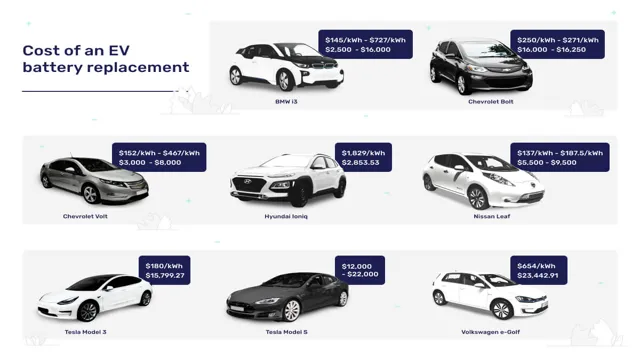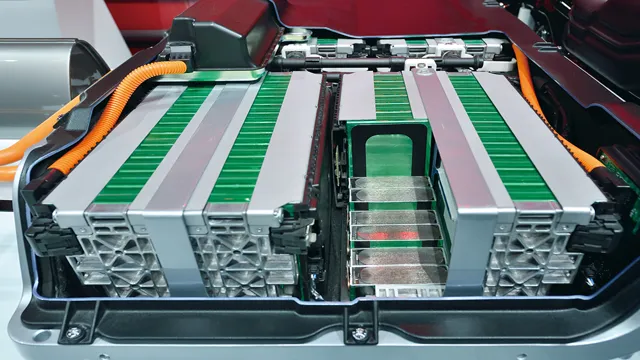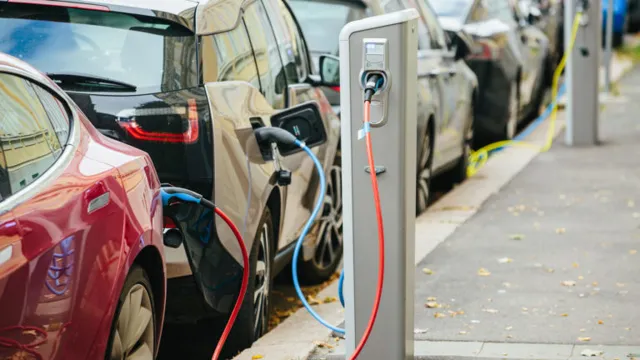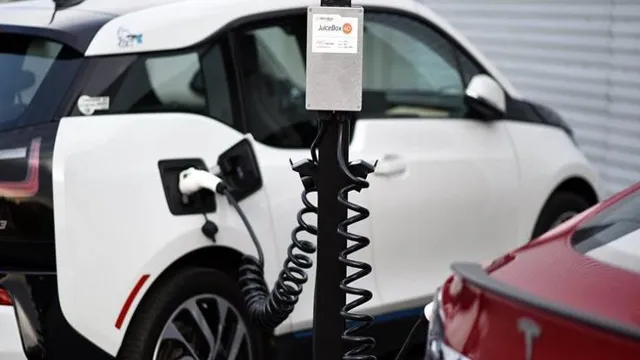Revolutionizing Transportation: Latest updates and insights on Electric Car Battery Prices for 2020
Electric car battery costs have been a topic of conversation for quite some time now, both among car enthusiasts and environmentally conscious consumers. As we approach the end of 2020, it’s worth asking – what is the current state of electric car battery costs? Are they becoming more affordable or not? One thing is for sure, electric car technology is rapidly advancing, and as a result, batteries are becoming more efficient and durable. EV enthusiasts hope that these advancements in battery technology will eventually lead to decreased costs for both battery production and electric cars in general.
According to a report by BloombergNEF, electric car battery costs have dropped 87 percent since 20 This means that while electric cars were once considered as a luxury item, prices are becoming more competitive, and many electric vehicles are now priced comparably to their fossil-fueled counterparts. However, despite significant progress, battery costs still make up a substantial amount of an electric car’s price.
What’s more, not everyone can afford a brand new electric car. This might mean that current prices of electric cars are still prohibitive for a large section of the population. The irony is that as awareness about the benefits of cleaner energy grows, adoption rates are dropping.
In many places, the price of electric cars has yet to become low enough to make them a viable option for most buyers. While it remains to be seen if these costs will continue to decrease, we can take comfort in the fact that there is tremendous progress being made in EV technology. The future of electric cars looks bright, and before long, these vehicles may finally become accessible to everyone.
The Cost Breakdown
When it comes to buying an electric car, the cost breakdown can be quite complex. One of the major factors that contribute to the overall price of an electric car is the battery. In 2020, the average electric car battery price was around $137 per kilowatt-hour (kWh).
However, this cost can vary greatly depending on the size and type of battery needed for the specific car. For example, a Tesla Model S battery can cost upwards of $20,000, while a Nissan Leaf battery may only cost around $5,000. It’s also worth noting that government incentives and rebates can help offset the cost of purchasing an electric car.
Despite the initial investment, the long-term savings on fuel costs can make owning an electric car more affordable in the long run.
Battery Type
When it comes to choosing the right battery type, it’s important to consider the cost breakdown. There are several factors that can contribute to the overall cost of your battery, including its type, size, and capacity. Generally, there are two types of batteries: lead-acid batteries and lithium-ion batteries.
Lead-acid batteries are typically cheaper in terms of upfront cost, but they have a shorter lifespan and require more maintenance. On the other hand, lithium-ion batteries are more expensive upfront, but they last longer and require less maintenance. It’s important to consider the specific needs of your project when choosing a battery type, as the initial cost may not necessarily reflect the overall value and longevity of the battery.
Ultimately, weighing the pros and cons of each type will help you make an informed decision and choose the battery that’s right for you.
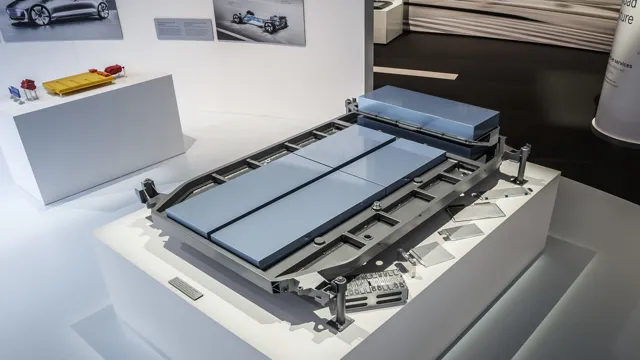
Battery Capacity
Battery capacity plays a crucial role in determining the performance and longevity of any device that relies on a rechargeable battery. It is important to consider the cost breakdown of the battery capacity when choosing a device that meets your needs. The cost breakdown is influenced by various factors such as the type of battery, the size of the battery, and the technology used in manufacturing the battery.
For instance, Lithium-ion batteries are generally more expensive than Nickel-metal Hydride batteries, due to their higher energy density and superior performance. The size of the battery also affects the cost, with larger capacity batteries costing more than smaller ones. Moreover, the manufacturing technology used in producing the batteries can impact the cost, with advanced manufacturing techniques leading to lower production costs.
Overall, it is essential to consider the cost breakdown of battery capacity when selecting a device to get the best value for your money.
Brand
Brand When it comes to building a brand, the cost breakdown is an important factor to consider. There are several expenses involved in creating a successful brand, including marketing materials, website design, and advertising campaigns. One of the first steps in building a brand is creating a logo, which can range in cost depending on the designer and complexity of the design.
Website design is another important aspect, especially in today’s digital age, and can come with costs for hosting, domain name registration, and ongoing maintenance. Advertising campaigns, both online and offline, are also crucial for getting your brand out there and can come with varying costs depending on the platform and reach desired. It’s important to budget accordingly and prioritize which expenses are necessary for building a strong brand identity that resonates with your target audience.
Average Prices for Top Electric Cars
Looking for a top electric car but not sure what the average prices are like in 2020? Well, the good news is that the average electric car battery price has dropped significantly in recent years. In fact, some of the top electric cars on the market right now are becoming more and more affordable. For instance, the Nissan Leaf, one of the most popular electric cars, goes for around $32,000, while the Chevy Bolt, another popular model, is priced at around $37,000.
If you’re looking for a bit more luxury, the Tesla Model 3 starts at around $38,000 and the Model S starts at $79,000. Of course, these prices are just estimates and can vary depending on where you live and what features you want in your electric car. However, overall, the market for electric cars is becoming more affordable, making it easier for you to make the switch to greener, more eco-friendly driving.
So, if you’re considering going electric, now might be the time to take the leap!
Tesla Model 3
When it comes to electric cars, the Tesla Model 3 is a popular choice for many people. However, it’s not the only option available. The average prices for the top electric cars on the market today vary depending on the make and model.
For example, the Nissan Leaf is a more affordable option, with an average price of around $31,000. Meanwhile, the Porsche Taycan is on the higher end of the price scale, with an average price of around $103,000. Of course, the cost of these cars may vary depending on where you live and what features you choose.
But overall, electric cars are becoming more affordable as technology continues to improve and battery costs decrease. So whether you’re looking for a luxury EV or a practical option for commuting, there are plenty of electric cars to choose from at different price points.
Chevrolet Bolt EV
The Chevrolet Bolt EV is a popular choice among electric car enthusiasts. Its average price ranges from around $36,500 to $43,000, making it one of the more affordable electric cars on the market. However, it still offers impressive features such as a range of up to 259 miles on a single charge.
It also includes safety features like a rearview camera and lane departure warning. While it may not have the prestige or luxury of some higher-end electric vehicles, the Bolt EV is a practical and affordable option for those looking to make the switch to electric. So, if you’re in the market for a reliable and cost-effective electric car, the Chevrolet Bolt EV could be an excellent choice for you.
Nissan Leaf
When it comes to top electric cars, the Nissan Leaf is definitely a front-runner. It boasts a sleek design, impressive range, and a variety of features that make it a great choice for eco-conscious drivers. But what about the price? Well, the good news is that the Nissan Leaf is one of the more affordable electric cars on the market, with an average price of around $30,000.
Of course, this can vary depending on the model and features you choose, but overall, the Leaf is a solid choice for anyone looking to go electric without breaking the bank. Plus, with its smooth handling and quiet ride, you’ll feel good while driving it too. So, if you’re thinking about making the switch to electric, the Nissan Leaf is definitely worth considering.
Factors That Affect Electric Car Battery Prices
Looking to buy an electric car in 2020? If so, the battery price is an important factor to keep in mind. The cost of an electric car battery can depend on several factors, including the type of battery technology, the size of the battery, and the manufacturer. Lithium-ion batteries, for example, are often more expensive than other types due to their higher energy density and longer lifespan.
The size of the battery can also affect the price tag, with larger batteries costing more than smaller ones. Additionally, the manufacturer’s name may play a role in the cost of the battery as some brands may have a higher reputation for quality and innovation than others. However, it’s important to keep in mind that overall battery prices have been decreasing in recent years due to advancements in technology and increased competition in the market.
So while electric car battery prices are definitely a consideration, they may not be a reason to shy away from going electric.
Manufacturing Costs
Electric car battery prices are determined by several factors, including manufacturing costs. These costs are influenced by the cost of raw materials such as cobalt, nickel, and lithium. The price of lithium, for example, has increased due to the growing demand for electric batteries.
Additionally, the cost of production equipment, labor, and transportation also affects battery prices. Since batteries are made with intricate mechanisms and require precise manufacturing techniques, the cost of labor is an important component of the overall manufacturing cost. Furthermore, transportation costs increase as suppliers are often located in different parts of the world.
As a result, electric car battery prices can vary significantly depending on the current prices of raw materials and the cost of manufacturing. However, with the development of new technologies, manufacturers are seeking to reduce costs and make electric vehicles more affordable for consumers.
Competition
If you’re interested in buying an electric car, one of the major considerations is battery price. Electric car battery prices have been decreasing gradually, thanks to advances in technology, economies of scale, and increased competition. There are several factors that affect the price of electric car batteries, such as the raw materials used to produce them, manufacturing costs, and economies of scale.
Additionally, the battery size and capacity also play a significant role in determining the final price tag. Moreover, battery prices can be affected by local market conditions, government incentives, and subsidies. Technological advancements in battery manufacturing, such as automated production and improved battery chemistry, also impact battery prices.
As electric car technology continues to advance, more automakers are entering the market, which is increasing competition and driving down prices. However, electric car batteries are still considerably more expensive than traditional internal combustion engine (ICE) vehicles, hence automakers are striving to make batteries more affordable.
In conclusion, electric car battery prices are influenced by various factors.Technological innovation, competition, government incentives, economies of scale, and raw material prices are some of the key factors that affect battery prices. As technology continues to develop, automakers are striving to make batteries more affordable, which will ultimately drive the growth of the electric car market.
Research and Development
Electric car batteries have become increasingly popular in recent years, especially as more and more people prioritize environmental concerns. However, the price tag on these batteries can sometimes be a deterrent for potential buyers. Several factors affect electric car battery prices, including the type of battery used, the cost of raw materials, and the production process.
Lithium-ion batteries are currently the most popular type used in electric cars, but they are also the most expensive. The cost of raw materials, such as nickel, cobalt, and lithium, can fluctuate, therefore affecting battery prices. The production process also plays a significant role in determining the final price of electric car batteries.
As technology advances and production processes become more efficient, it is likely that the cost of electric car batteries will continue to decrease, making them an even more attractive option for environmentally conscious drivers.
The Future of Electric Car Battery Prices
As electric cars gain popularity, the cost of their batteries is becoming a significant factor in the overall price tag. In 2020, the average electric car battery price was around $137 per kilowatt-hour (kWh), down from over $1,100/kWh in 20 This dramatic drop has been fueled by advances in technology and increased production levels.
However, the industry is still working to bring costs down even further to make electric vehicles more affordable for the average consumer. In the coming years, we can expect to see even more innovations in battery technology, such as solid-state batteries, which have the potential to revolutionize the EV market and bring down prices even more. With the continued push towards electrification, the electric car battery price is likely to become even more competitive, making EVs an attractive option for more drivers around the world.
Conclusion
In a world where climate change and rising fuel costs are becoming increasingly urgent problems, the electric car battery remains a beacon of hope. While the price of these batteries may seem steep in the short term, projections suggest that they will continue to drop in the coming years. As the industry evolves and technology improves, electric car batteries are becoming more accessible and cost-effective for the average driver.
So if you’re looking to be both environmentally friendly and economical in the long run, investing in an electric car battery may just be worth it. Just remember, the price tag isn’t the only thing that’s charged about these cars – so is our energy for a better future!”
FAQs
What is the average price of an electric car battery in 2020?
The average price of an electric car battery in 2020 ranges from $5,500 to $15,000, depending on the type and size of the battery.
How long do electric car batteries last?
Electric car batteries can last anywhere from 8 to 20 years, depending on the usage and maintenance.
Are electric car batteries expensive to replace?
Yes, electric car batteries can be expensive to replace, with costs ranging from $3,000 to $7,000 or more, depending on the make and model of the car.
Can you upgrade an electric car battery?
Some electric cars allow for battery upgrades, while others do not. It is best to check with the manufacturer or a licensed dealer for specific information on battery upgrades.
